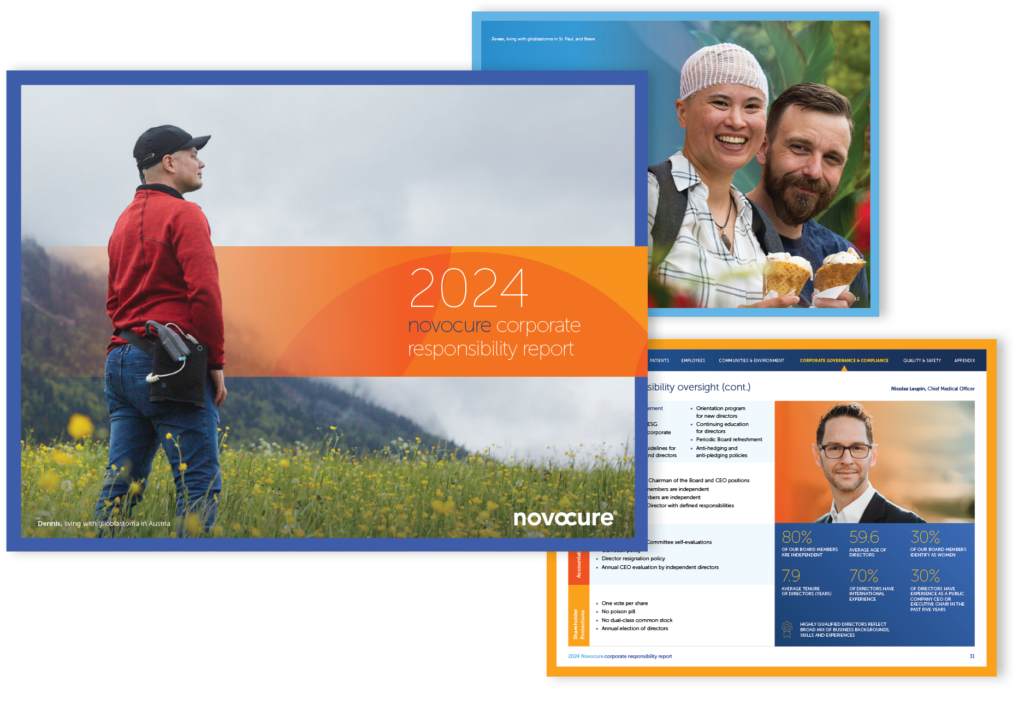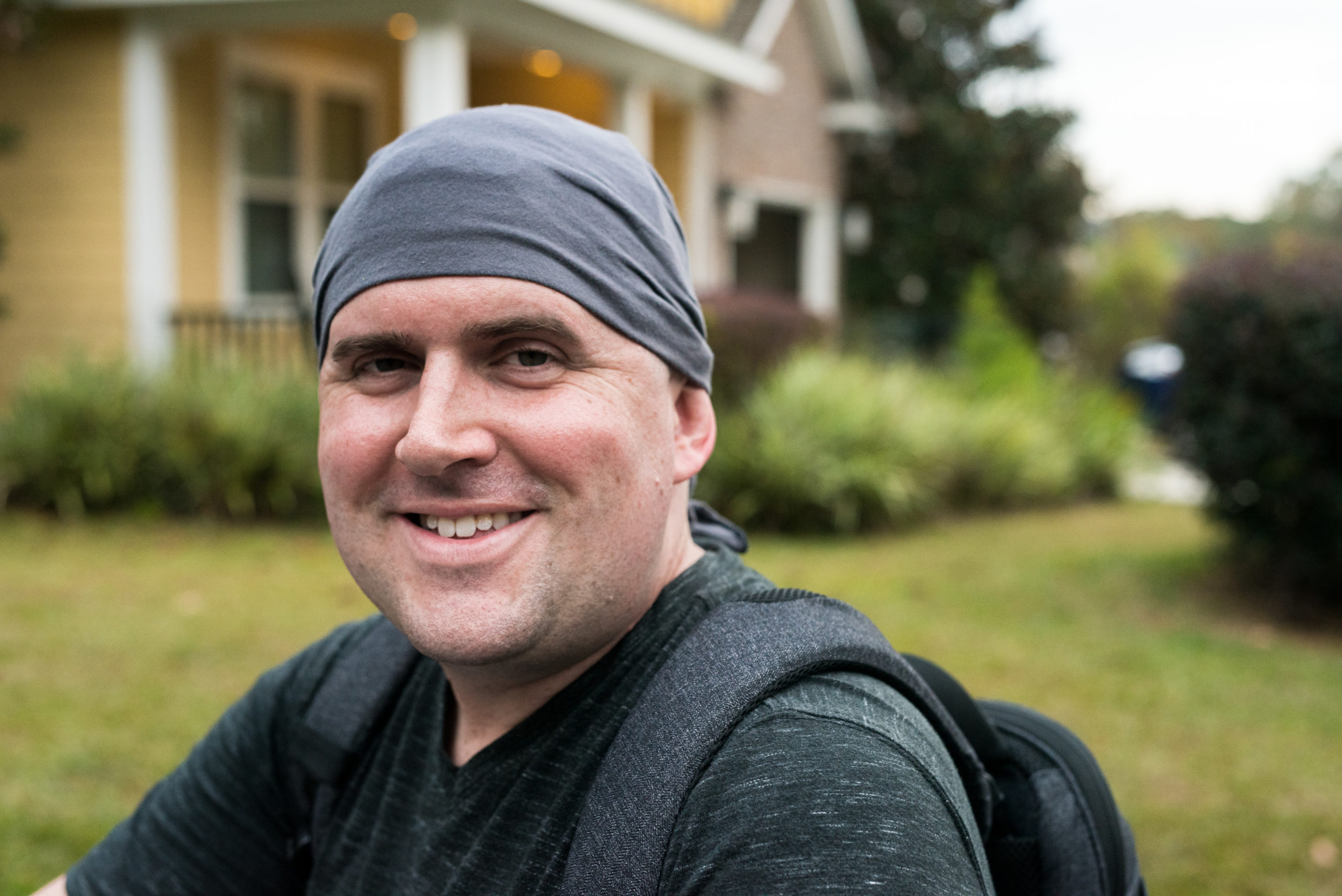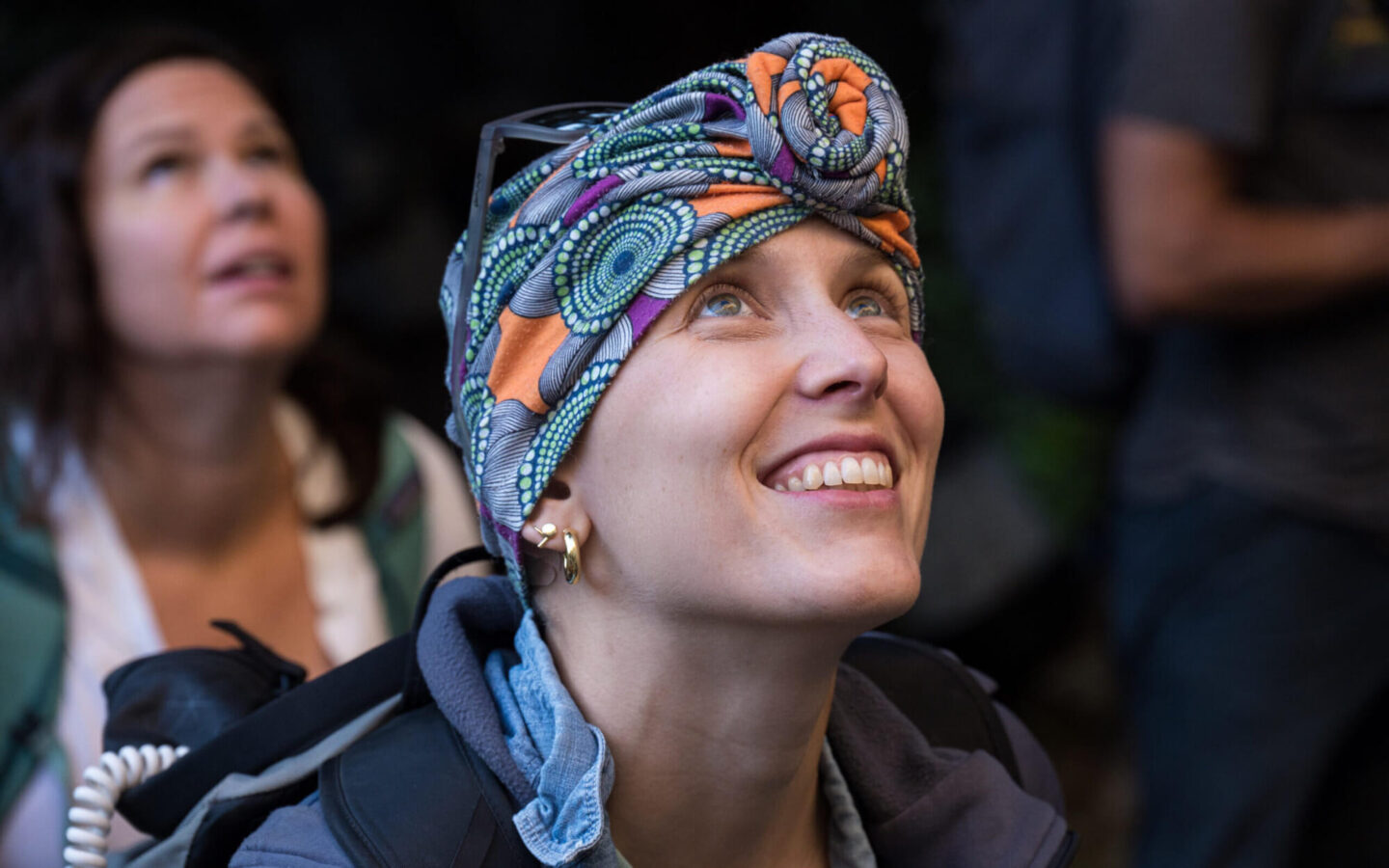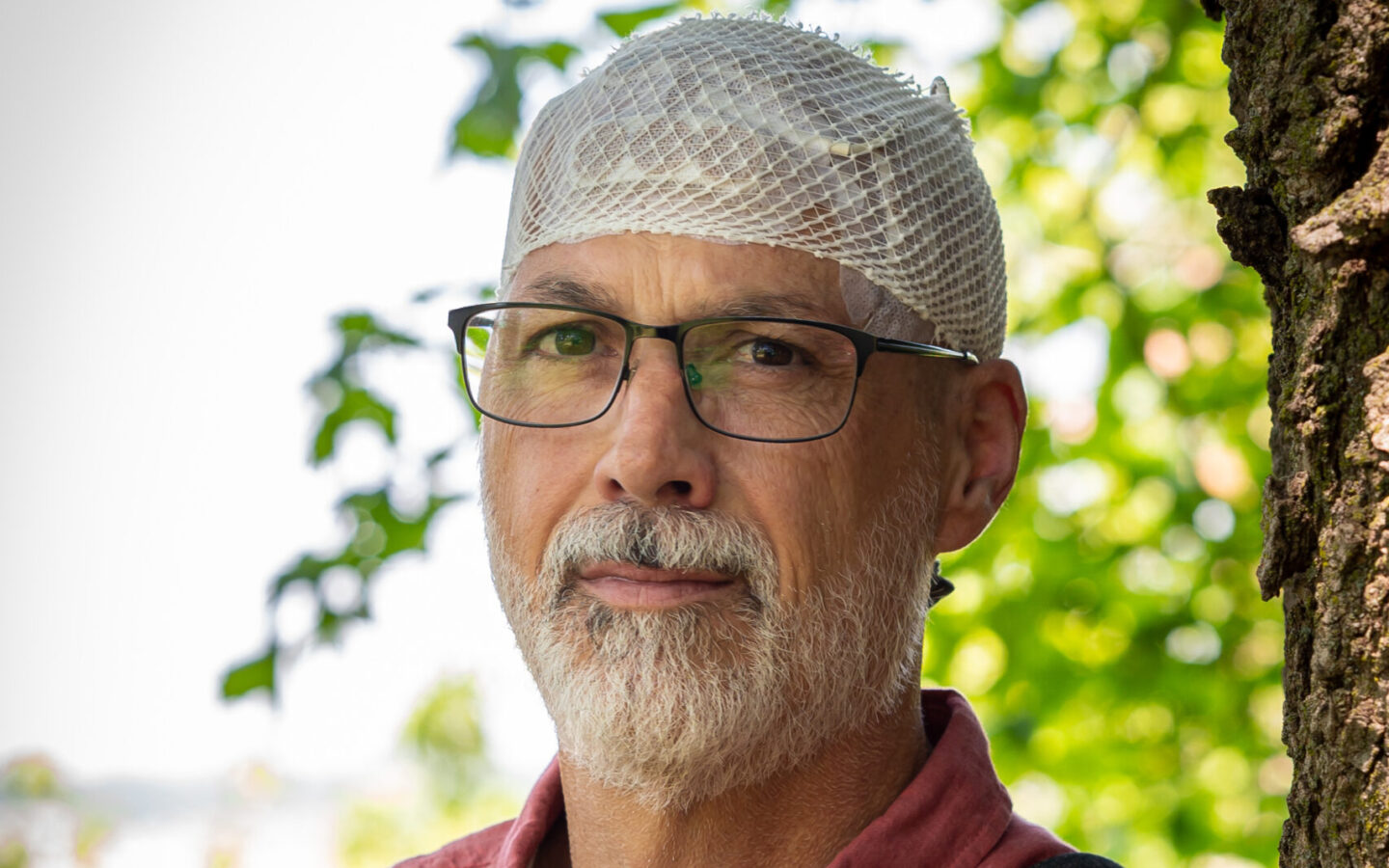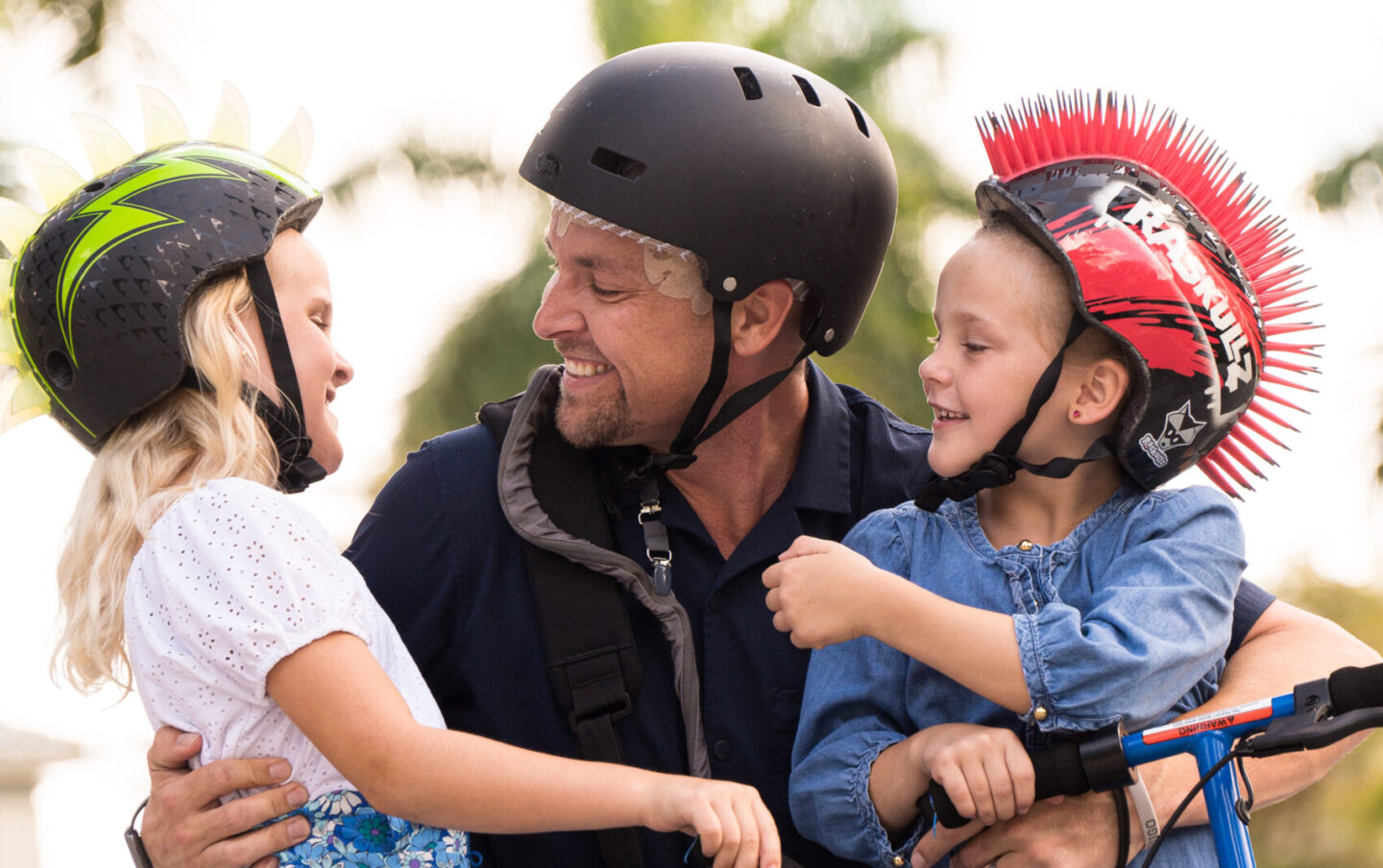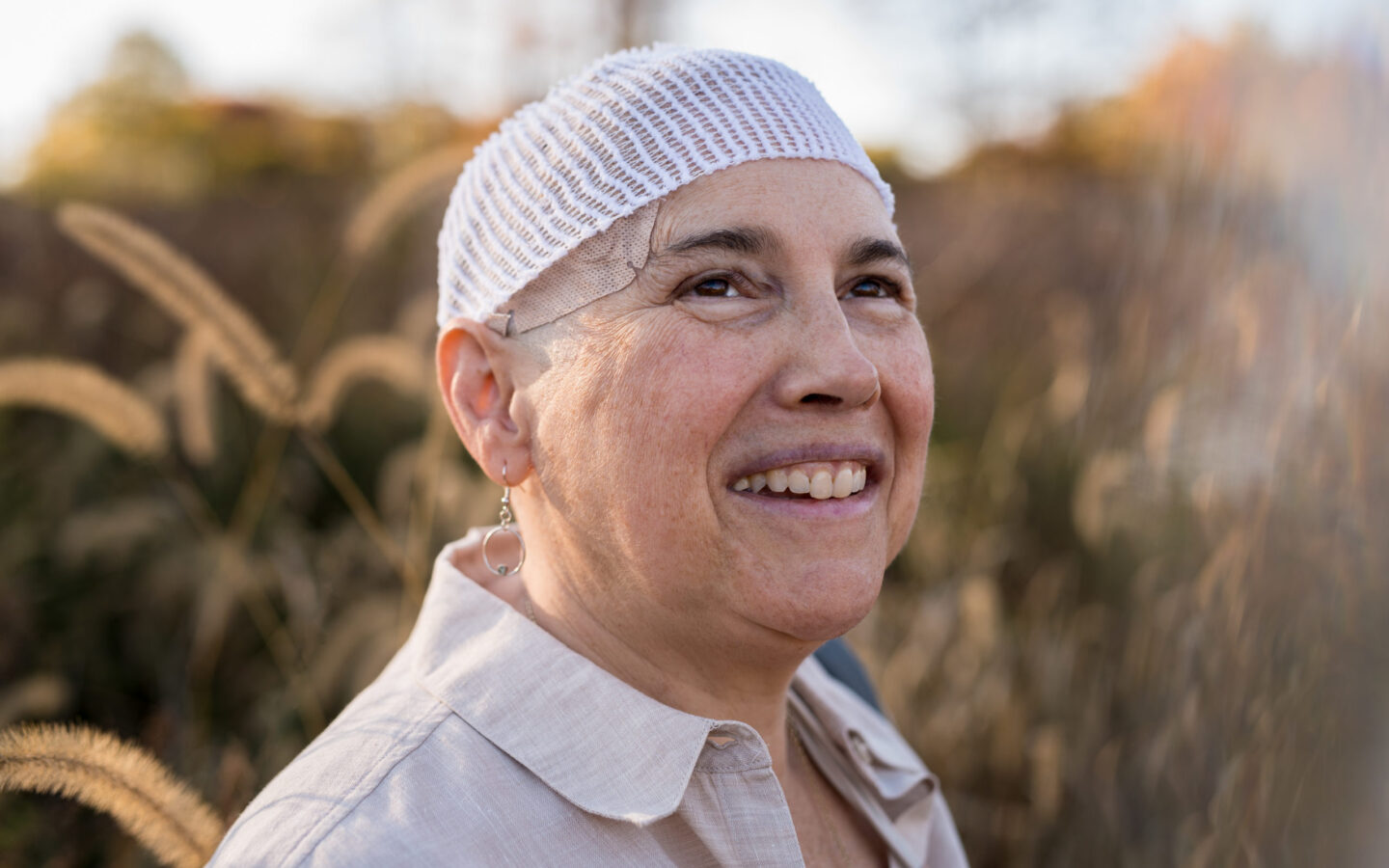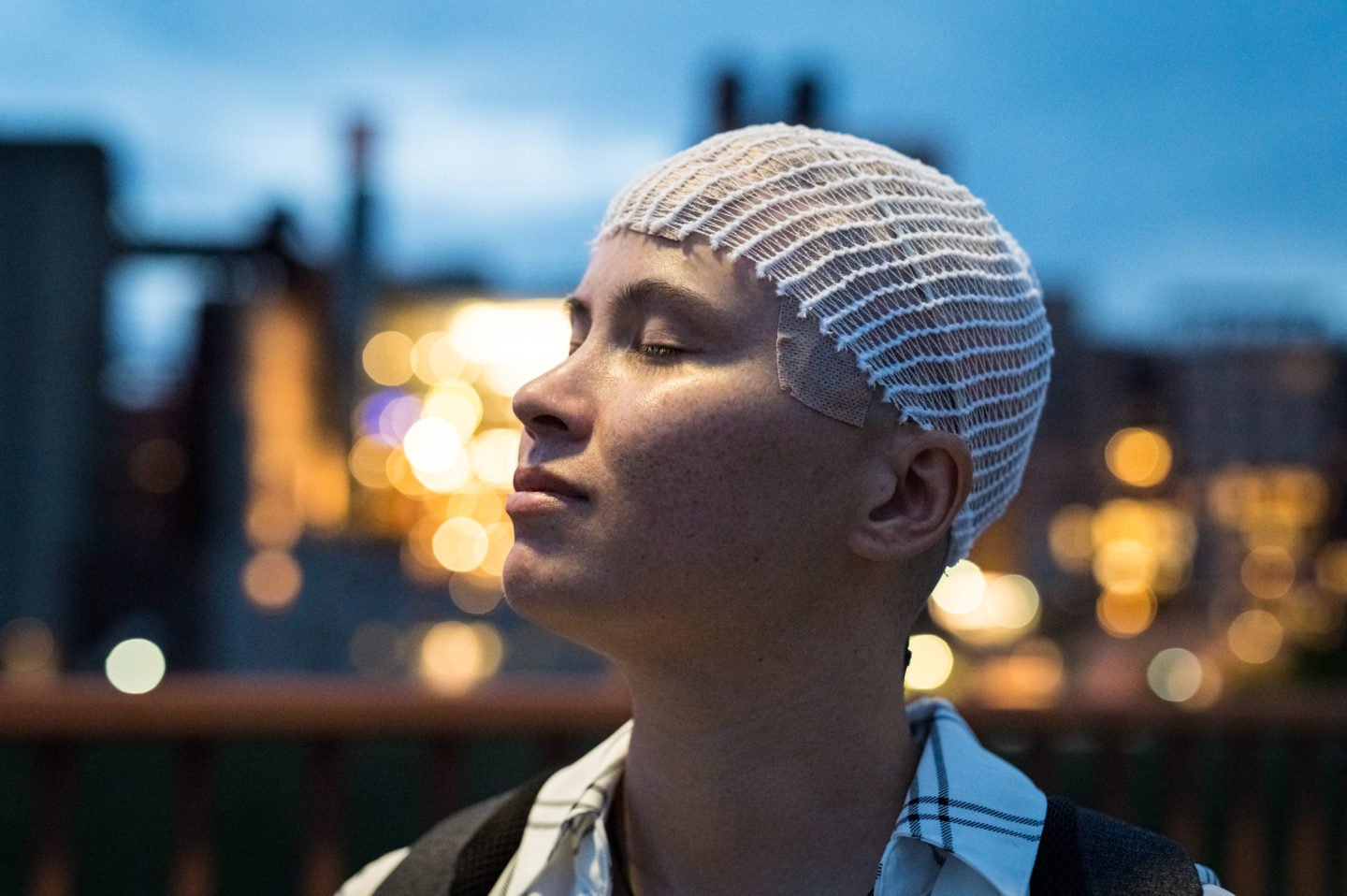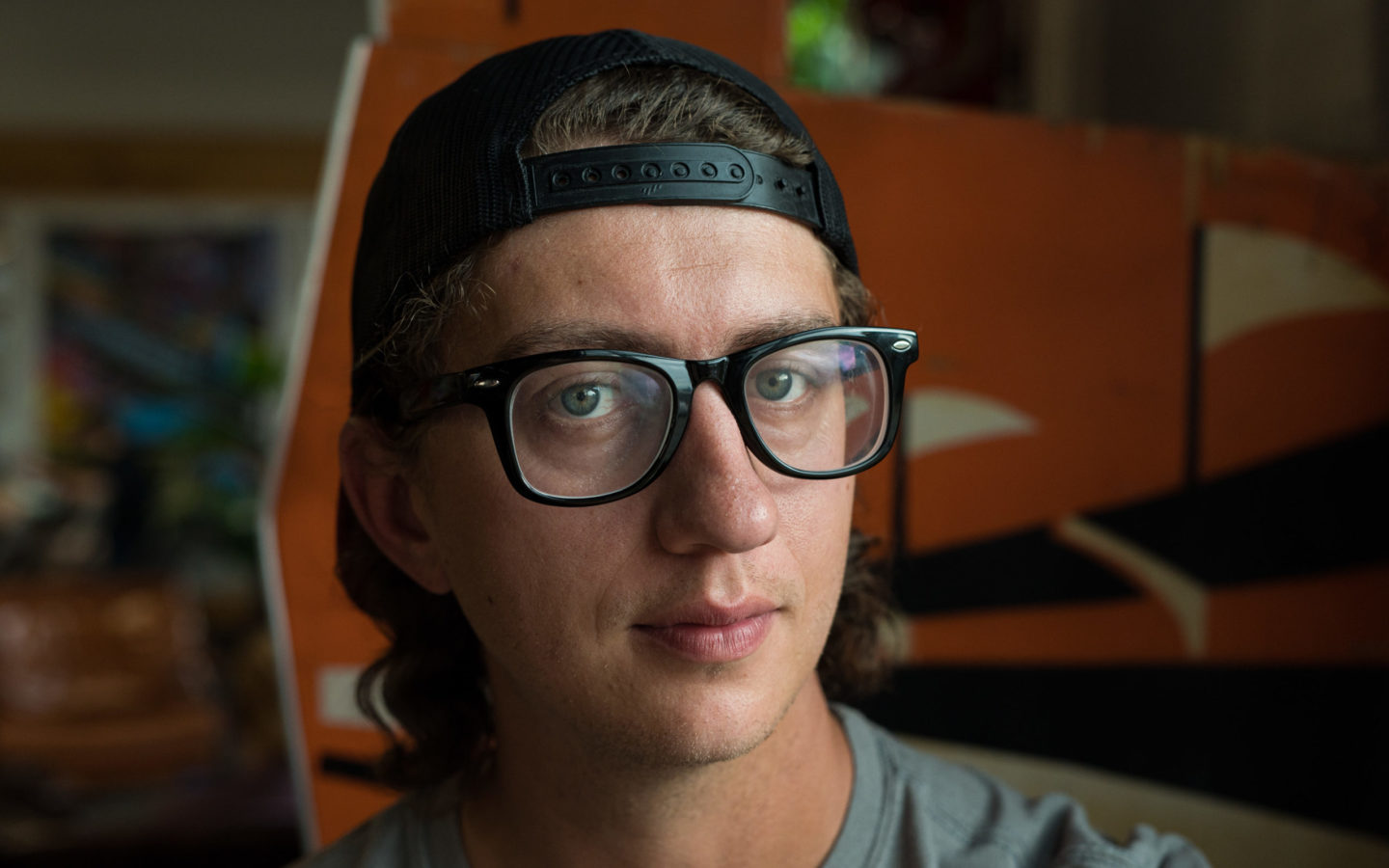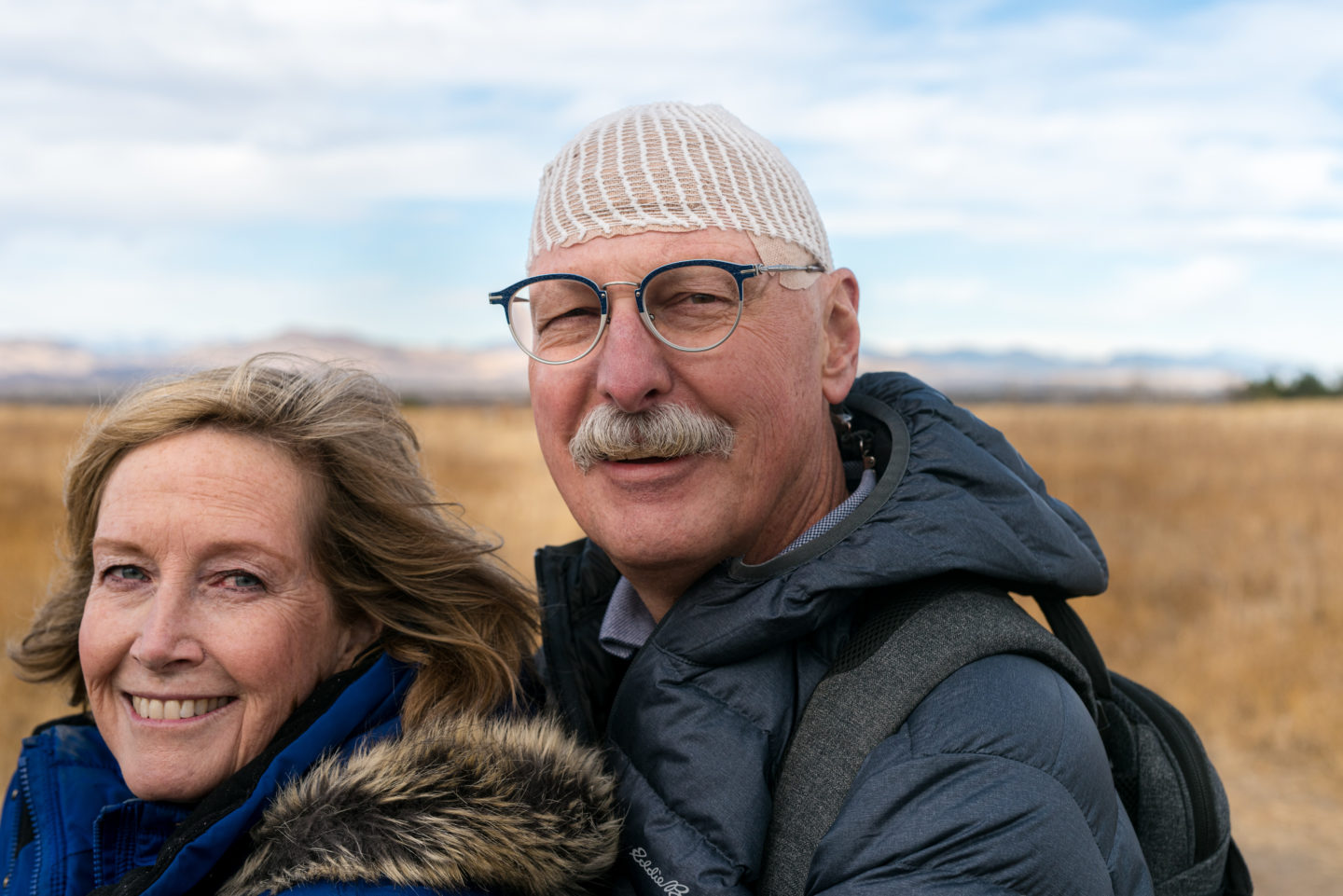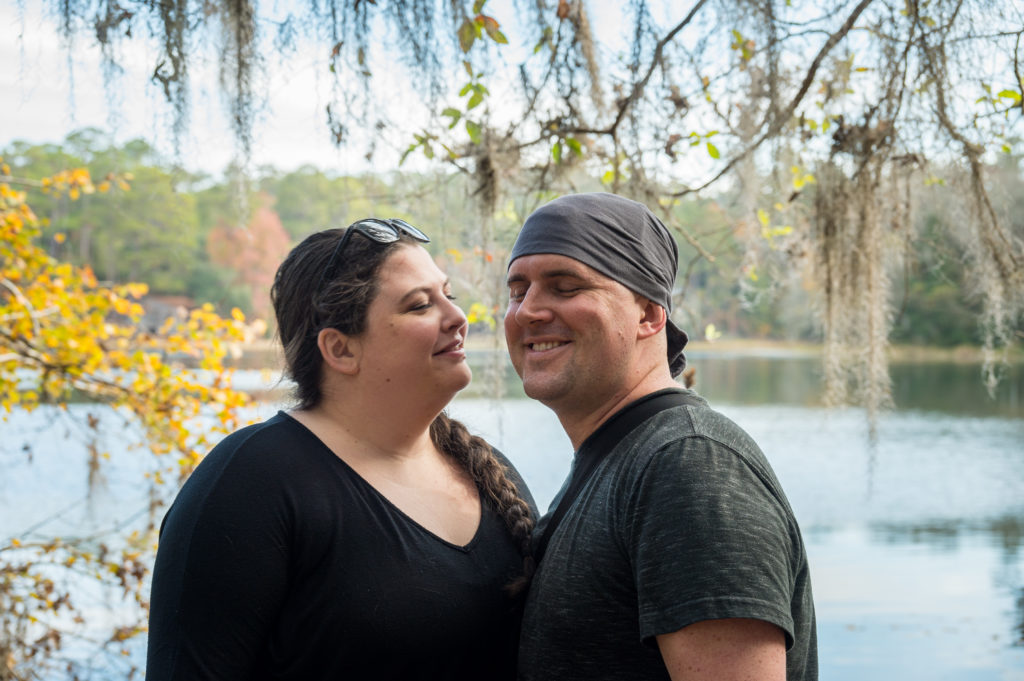
For more than a decade, Justin Charrette has worked in the deli for a major Southern grocery store chain. A Florida native who lives in Tallahassee, Florida, Justin has always prided himself on treating people right, whether slicing a customer’s favorite lunch meat to the perfect thickness or preparing a fresh sandwich just the way they like it.
Over the years, he worked his way up to a management position and was poised to transfer to a new store with a larger deli department. Excited about the opportunity, he visited his soon-to-be new workplace to check out the merchandise and setup.
The next morning, when Justin woke up, his new role was the furthest thing from his mind. He had an excruciating headache and neck pain. He couldn’t think clearly, and it kept getting worse.
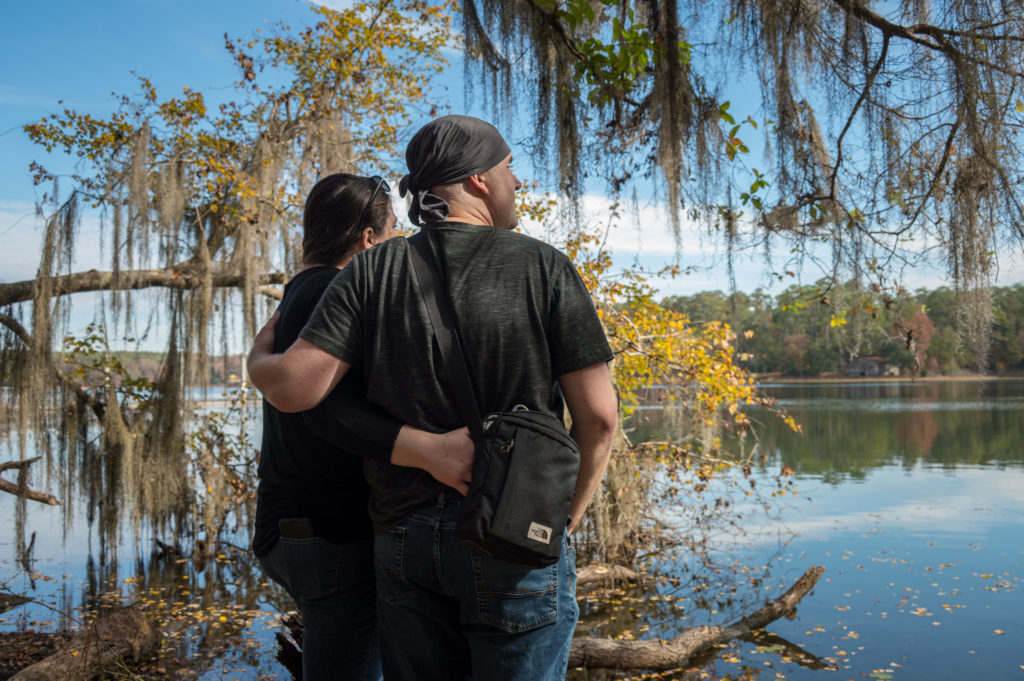
“A couple of hours later, I was at the point where I could not spell my name or write my name,” he said. “I didn’t know the date or the year. I thought the president was… What did I say? Bill Clinton or something silly.”
Justin’s now-wife, Courtney, a neonatal intensive care unit nurse, took Justin to the emergency department, hoping the problem was just dehydration, easily treated with a bag of IV fluids. At the hospital, Justin received a CT scan.
“The doctor walks in and says, ‘Hey, you’re a nurse, right?’ and shows her the picture of this baseball-size glioblastoma (GBM) that had moved my brain over,” Justin recalled.
While Courtney’s expertise is in taking care of infants, not adults with brain tumors, she knew the scan didn’t look right.
“I think I just went into shock, and just, I don’t know, you go numb, and you just try to go into taking care of everything,” Courtney said. “It has taken a long time to process.”
Justin had surgery immediately to remove the tumor, and he later left the hospital with about 50 staples in his head.
His recovery from surgery was overwhelming, especially at first. Justin believes his tumor changed his sensory processing and cognition, perhaps slowly over time as it grew.
“After my surgery, my brain was just way overloaded because I think it suppressed my ability to see and gather information like a normal person would,” Justin said.
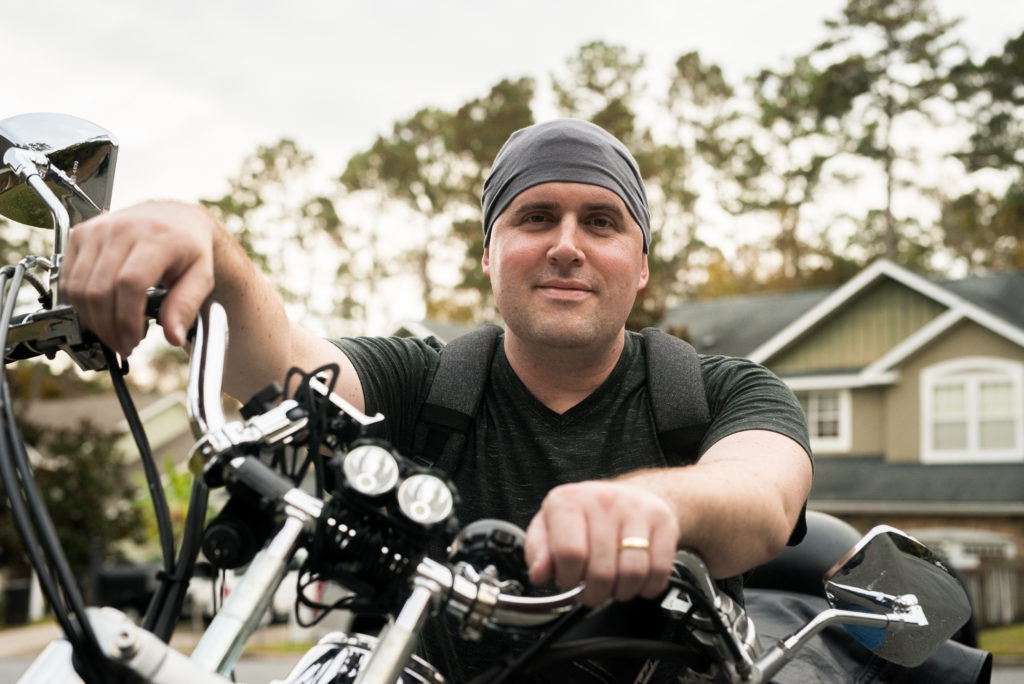
The sudden recovery of his senses had some upsides — the first steak he ate after surgery was so delicious, Justin likened it to a religious experience. But he especially felt overstimulated by visual information — even going to the grocery store felt like too much. In an attempt to overcome this challenge, he turned to an old hobby.
“Interestingly, I had never really played video games since I was a kid, but in my time off, I thought it would be good to help control the stimulation, so I started playing a few video games to just stimulate my mind and get it used to processing things,” he said. “I know it just sounds weird, but it was helpful to do that.”
Solving puzzles and challenges in the virtual world helped Justin feel more equipped to handle the challenges ahead in life. He is also learning to ride a motorcycle, practicing slowly in parking lots while wearing plenty of protective gear.
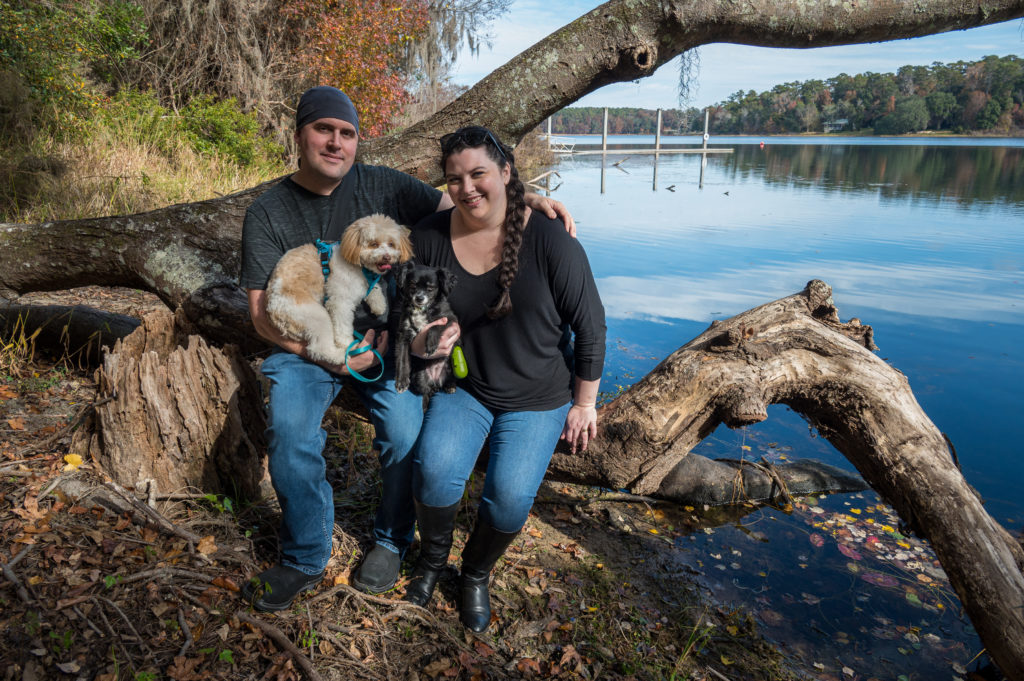
Courtney and his parents have supported Justin every step of the way, from helping him keep track of medications to filling out paperwork to seeking medical attention if he has new symptoms, like a recent bout of numbness in his arm.
Justin and Courtney married in October 2021, and he could not be more grateful for her support.
“She’s probably one of the bravest people I know, to love somebody enough and unconditionally that you just stand by them no matter what, no matter how scary it was,” he said.
The couple’s love story began years ago when Courtney was Justin’s customer at the deli.
“I think we talked for a good year or two before I even introduced myself,” Courtney said. “And he was just always smiling and just so kind to everyone.”
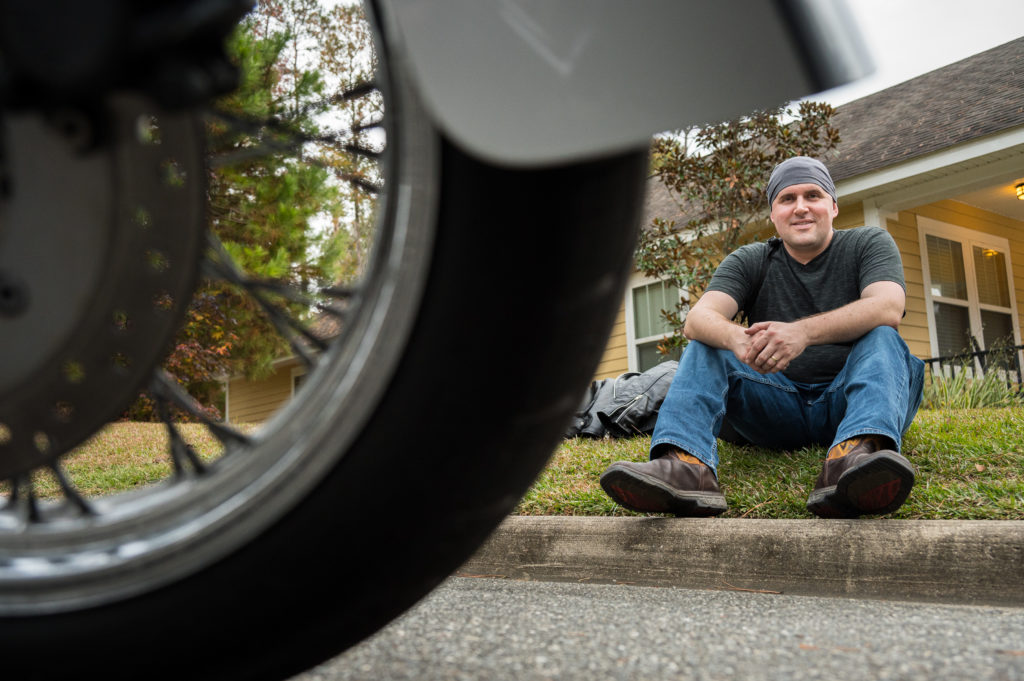
After plenty of chats over Courtney’s orders of chicken (for her dog) and turkey subs (for herself), Courtney gave Justin a birthday card with her name and contact information. He still has it.
They went on some dates, but timing kept pulling them apart. Justin and Courtney both had some personal challenges that kept their relationship from progressing. That is until a few years later, when Courtney sent Justin another birthday card through the mail. He responded, and they met at a coffee shop, where one hug in the parking lot changed everything.
“I put my arms around her, and I thought, Oh my gosh, this woman, I don’t ever want to let her go again,” Justin said.
Today, he credits Courtney with saving him.
“She took a very broken man and nursed him back into being a human being again, more or less,” Justin said.
To balance her nursing career and caregiving responsibilities, Courtney had to learn how to set limits and take care of herself. She practices mindfulness, prioritizes sleep, listens to her body and sets boundaries as needed to protect her energy.
“I always say you can’t fill other people’s cups with an empty cup, so you have to take care of you, especially as a caregiver or a spouse,” Courtney said. “Going through it, it’s a lot for the person getting diagnosed, but it’s a lot to be there side by side, too.”
Looking to the future, Justin and Courtney are hopeful. Courtney draws comfort from learning about research on treatments for GBM.
“I think all the developments that are being made really help with the hope,” she said.
Justin wants to be as active as he can, and he still works at the deli. He doesn’t do some of the physically demanding work he once enjoyed, like unloading trucks, but he still slices meat for customers. It’s all possible because of support from his coworkers at Publix.
“I’ve got a great team there,” he said. “They pitch in and help out.”
He also hopes to eventually help others who are struggling through a difficult diagnosis, bringing a smile to their faces just as he has for so many customers over the years.
“It comes down to hope because it’s a very scary disease,” he said. “It’s life-altering.”
He’s not sure yet what that will look like, but it’s something he thinks about often.
“I think in the back of my mind, that’s really the next chapter that I’m looking for, and I don’t know how or where,” Justin said.
He does know that he wants to do as much as he can with the time he has.
“The idea of having hope to do things that you like to do when you can, that’s very empowering,” he said.
The health status of patients featured reflects their condition at the time the story was written and photographs were taken and may have changed over time.

